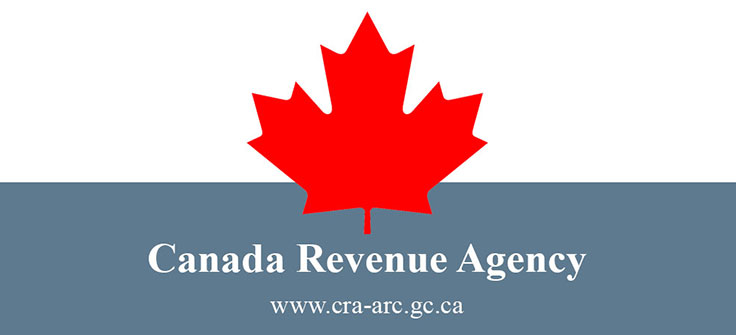On April 15, 2016, the Department of Finance Canada announced legislative proposals for consultation to implement the Common Reporting Standard in Canada. The following questions and answers give more information and tax administration perspectives about the Common Reporting Standard.
The Canada Revenue Agency will continue to inform the public of tax changes through its website, forms and publications, phone enquiries services and other communication channels.
refers: www.cra-arc.gc.ca
1What is the Common Reporting Standard?
The Common Reporting Standard (CRS) is a new international standard for the automatic exchange of financial account information between tax administrations to use in fighting tax evasion and to promote voluntary compliance with tax laws. Canada and close to a hundred other jurisdictions are committed to its implementation. For a list of the jurisdictions that have committed to implement the CRS visit the Organization for Economic Cooperation and Development website at: https://www.oecd.org/tax/transparency/AEOI-commitments.pdf.
2What are the key features of the Common Reporting Standard?
The Common Reporting Standard (CRS) requires financial institutions in a jurisdiction to report to their tax administration the financial accounts held by non-resident individuals and entities or, certain entities controlled by non-resident individuals. Tax administrations are, in turn, expected to share the financial account information with other jurisdictions committed to the CRS through formalized arrangements.
The implementation of the CRS in Canada would result in Canadian financial institutions having to report to the Canada Revenue Agency (CRA) the financial accounts they maintain for non-residents of Canada and certain entities controlled by non-residents of Canada. The CRA would, in turn, give to each foreign jurisdiction with which it has formalized a CRS partnership information on account holders who reside in that jurisdiction. To improve Canada’s ability to protect its tax base, the CRA would receive information on financial accounts held by Canadian residents outside of Canada from its CRS partners.
3When would the Common Reporting Standard take effect?
The Department of Finance has proposed that the Common Reporting Standard take effect starting on July 1, 2017. As of that date, Canadian financial institutions would be required to have procedures in place to identify accounts held by non-residents and to report the required information to the Canada Revenue Agency.
4Would the implementation of the Common Reporting Standard change how you, as an individual, interact with your Canadian financial institution?
If your financial institution has information indicating that you may be a non-resident of Canada, it may ask where you reside for tax purposes. You could also expect to be asked by your financial institution to declare your residency for tax purposes when you open an account and to provide documentation to support your declaration, such as a driver’s licence. Financial institutions have to know where you reside, so they can satisfy their tax reporting obligations to the Canada Revenue Agency.
5Would the implementation of the Common Reporting Standard cause the account information of Canadian residents to be shared with other jurisdictions?
The Common Reporting Standard (CRS) is designed to help jurisdictions maintain the integrity of their tax systems by making it more difficult for their residents to conceal investments through foreign financial institutions. As such, the implementation of the CRS in Canada would cause reporting by Canadian financial institutions only in respect of non-residents of Canada.
6Do the legislative proposals released by the Department of Finance Canada on April 15, 2016, to implement the Common Reporting Standard propose to change any of the required reporting to the U.S under the terms of the Canada-U.S. Intergovernmental Agreement?
No, they do not. The Canada Revenue Agency and the U.S. Internal Revenue Service will continue to cooperate in accordance with the Canada-U.S. Intergovernmental Agreement.
7When financial data is shared with another jurisdiction, must it stay confidential?
Yes, it is required to stay confidential. The Common Reporting Standard (CRS) requires financial data to be exchanged under the strict confidentiality provisions of the Convention on Mutual Administrative Assistance in Tax Matters or a relevant tax treaty.
The implementation of the CRS in Canada would not cause the Canada Revenue Agency (CRA) to start exchanging CRS information with any jurisdiction prior to the CRA being satisfied that the jurisdiction has the appropriate capacity and safeguards in place to keep information safe.
8Who are the Canada Revenue Agency’s partners under the Common Reporting Standard?
The Canada Revenue Agency (CRA) is working to establish partners with which to exchange CRS information. The CRA looks to establish these partnerships well ahead of Canada’s first anticipated exchange of CRS information in 2018.
9What types of information will be reported to the Canada Revenue Agency?
It is proposed that Canadian financial institutions report the following information on non-resident account holders to the Canada Revenue Agency:
- identifying information for the account holder (name and address)
- taxpayer identification numbers
- date of birth
- account number
- account balance or value at end of the year
- certain amounts paid or credited to the account
10What should you do if you have not fully complied with Canadian tax laws?
The Voluntary Disclosures Program (VDP) promotes compliance with Canada's tax laws by encouraging taxpayers to voluntarily come forward and correct previous omissions in their dealings with the Canada Revenue Agency. Taxpayers who make a valid disclosure have to pay any taxes or charges owing, plus interest. However, there will be no penalty or prosecution brought against them.
11Under the legislative proposals, is it anticipated that account holders will be able to know whether their financial institution has reported their account to the Canada Revenue Agency?
It is not proposed that financial institutions automatically notify their account holders about reporting to the Canada Revenue Agency in connection with the Common Reporting Standard. However, financial institutions will be expected, upon request, to inform account holders whether their personal information has been reported.

